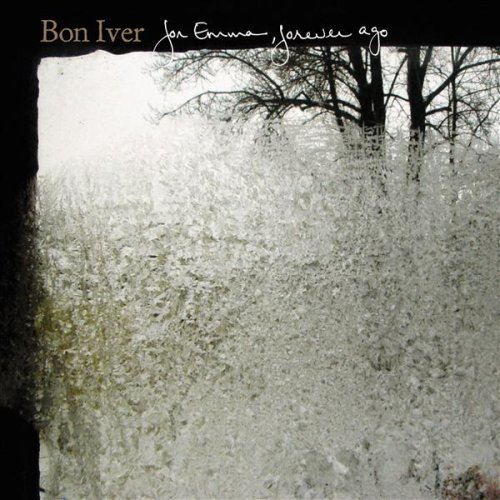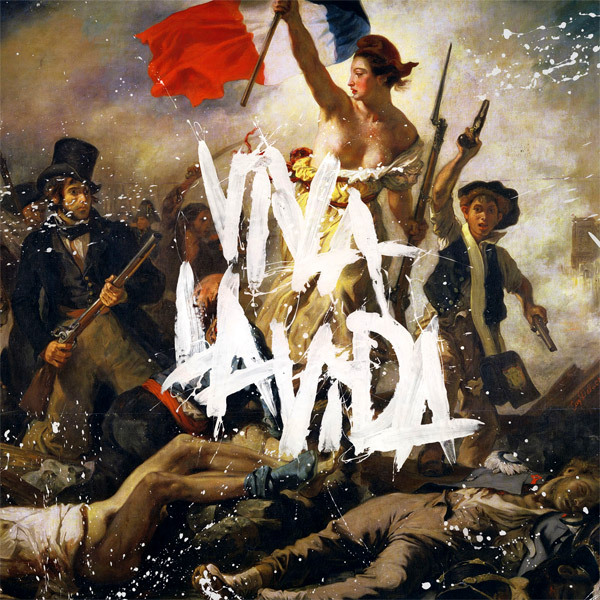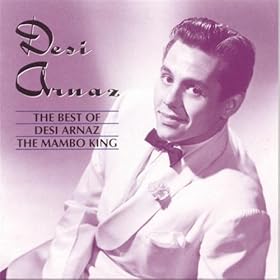I finally finished Bernard Malamud's
The Fixer (Pulitzer, 1967) around two this morning. I retired to my bedroom, lit the lamp on my nightstand, turned off my cell phone, played my iPod and forced myself to finish the last half of the book in one sitting (or "laying," more accurately). As it turned out, I had to finish the book in one swoop, not because of the stringent time constraints I've imposed on myself, but because I couldn't hardly put the book down. The intensity of Malamud's descriptions of Yakov Bok's imprisonment were so haunting, so horrifying, so revolting that, though I really wanted to close my eyes and think about something more pleasant, I couldn't turn them away from the pages. And as I laid there, feigning off sleep and turning page after page, I very consciously made every effort not to let myself get pulled too much into the story; I really didn't want to spend the remainder of my time awake in solitary confinement with Yakov Bok, but Malamud made me. He made me share Bok's cell, his anger, his frustration, his sorrow, his paranoia. And when I read the last several pages, hoping, along with Bok, that the injustice would soon be over, that I, with Bok, would revel in our freedom, I was crushed when I finished the last paragraph and turned down the page only to find three more pages that were completely blank. I couldn't hardly believe the ending, so I read it another two or three times, just to make sure I was comprehending what I was reading. I closed the book, set it down on the nightstand beside me, turned off the light and laid there, in the darkness, staring straight up at the ceiling for about 20 minutes, trying to wrap my mind around its conclusion and weeping.
But before I get into my reactions to the book, maybe I should try to summarize it, as best as I can, so as to not leave my readers in the dark.
The Fixer is the story of Yakov Bok, a Jew living in a shtetl in anti-Semitic, turn-of-the-20th-century Russia. He's a handyman by trade (hence, his nickname - "the fixer") and living in poverty, though he is doing his best to keep his head above water. His wife cheated on him and left him, he lost nearly everything he ever owned and had little to no money, often accepting soup as reward for the work he performed for neighbors and friends. Bok dreams of running away from his misery, to Europe, to America, anywhere that isn't the shtetl, and living a fuller, happier life.
So, one day, he sets out and, along the way to wherever the road took him, he helps a Russian family in Kiev and accepts a job in their family-owned brickyard. When it is discovered that he is a Jew, and when a Christian boy is murdered not far from his dwelling, he is arrested under false accusations, imprisoned and tortured. The last 3/4ths of the book—give or take—are pages filled with his tortures, his pain and suffering, his misery, all while he waits for his indictment (let alone a trial).
That's, essentially, all that really happens. There are a lot of interesting subplots and a lot of interesting commentary on human relations by Malamud, but what I just described is basically the high points of the action in the book
As I approached the end of the book, I began to see Bok as a sort of Christ character—the parallels were uncanny: a Jewish handyman (or carpenter) by trade, 30 years old, wrongfully accused, imprisoned, tortured and, eventually, becoming the hope of the multitudes. There are some obvious differences between Jesus and Yakov (Bok, for instance, rejects religion and labels himself a "freethinker;" Bok is married; Bok is an unpolitical man who refuses to share his beliefs with those who ask; and, of course, the biggest difference is that Bok is a sort reluctant savior), but, for the most part, I had a difficult time separating the two characters.
This became even more apparent at the conclusion of the story, when Bok is being transferred from the prison to the court for his trial and an explosion rocks his carriage and creates mayhem in the streets. We are to assume that the blast was created by Jews in an effort to free Bok, but he remains in the carriage in spite of his opportunity to run, because he knows what his trial will mean to his fellow Jews. It would be easy for him to run away and not confront the powers that be; it would be easy for him to ignore the cries of his peers and pursue a life of his own making. He stayed in that carriage because he knew that if he were found innocent at his trial, it would be a "mitzvah" for his people, and if he were found guilty, it would be the spark that ignited the powder keg of a Jewish revolution in Russia. In either circumstance, his life hung in the balance of glory and defeat. Thus, "the fixer" becomes the reluctant messiah to his people.
In the final scene of the novel, Bok, while still in the carriage, daydreams about sitting down to tea with the Tsar—the Tsar who had done the most to suppress Jews ("to maintain order")—and having a conversation. In this conversation, the fixer makes a case for his people and then goes on to berate the Tsar for his misguided rule. He states:
...one must also think how oppressed, ignorant and miserable most of us are in this country, gentiles as well as Jews, under your government and ministers. What it amounts to, Little Father, is that whether you wanted [the crown] or not you had your chance; in fact many chances, but the best you could give us with all good intentions is the poorest and most reactionary state in Europe. In other words, you've made out of this country a valley of bones. You had your chances and pissed them away. There's no argument against that. It's not easy to twist events by the tail but you might have done something for a better life for us all—for the future of Russia, one might say, but you didn't.
This scene, of course, seems to be a retelling of the Passion when Jesus and Herod have a discussion about why Jesus should be freed. The two tales end dramatically different (Jesus didn't shoot Herod, obviously), but the tone is the same.
The Tsar presents his argument by replying, "I'm only one man though ruler and yet you blame me for our whole history." The fixer, completely unphased by the Tsar's words, loads a single bullet into a gun that appears on the table before him and shoots directly into the Tsar's heart. Malamud ends the scene, and the novel:
As for history, Yakov thought, there are ways to reverse it. What the Tsar deserves is a bullet in the gut. Better him than us...One thing I've learned, he thought, there's no such thing as an unpolitical man, especially a Jew. You can't be one without the other, that's clear enough. You can't sit still and see yourself destroyed.
Afterwards, he thought, Where there's no fight for it there's no freedom. What is it Spinoza says? If the state acts in ways that are abhorrent to human nature it's the lesser evil to destroy it. Death to the anti-Semites! Long live revolution! Long live liberty!
The crowds lining both sides of the streets were dense again, packed tight between curb and housefront. There were faces at every window and people standing on rooftops along the way. Among those in the street were Jews of the Plossky District. Some, as the carriage clattered by and they glimpsed the fixer, were openly weeping, wringing their hands. One thinly bearded man clawed his face. One or two waved at Yakov. Some shouted his name.
I imagined Jesus, carrying his cross and being mocked, ridiculed and spat at, making his way through the streets of Jerusalem and up the hill of Calvary, facing his death for my sake—indeed, a revolutionary's death—and I wept bitterly at the thought of it. Perhaps I was reading the novel with a spiritual filter because I am actively participating in Lent this year (a time to focus, with prayer and fasting, on the days leading up to Christ's crucifixion and ultimate resurrection), but this novel seemed like an appropriate one to read given the current liturgical season.

I recently read Donald Miller's new book, A Million Miles In a Thousand Years, and I was depressed throughout the entire book. His thesis, if you will, is basically "To live a meaningful life, you have to have goals and you have to work your way toward accomplishing them." Then, he breaks that down even further by explaining that some goals are better than others (for instance, wanting to ride your bicycle across the country is a noble goal; wanting to buy a car is not).
While reading, I found it very hard not to be embittered by his ideas and the stories he put himself in the middle of to test his theories about storytelling. "Of course he rode his bike across America," I thought. "He's a writer of a New York Times bestseller—he has ample money to pay his bills and all the time in the world to undertake something like that. I would love to do something of that nature, I would love to be able to afford to do ANYTHING—I have dreams and goals too, but in this world, everything costs money that I don't have. I have neither the opportunity nor the funds to accomplish 90% of what I'd like to do"
Then I became very sad about my life. I kept thinking "According to Donald Miller's book, my life isn't a great story because I'm not as able as others to accomplish my goals. All I do is live day to day, trying my best just to get by." Miller had me convinced that my life wasn't worth much of anything because of my financial and social status (which I know was not his intention with his book at all).
Malamud, with The Fixer, makes me wonder if Miller really knows what he's talking about. While I agree that a good story has a character who possesses goals and overcomes conflicts to get them, I'm not so sure that the character necessarily has to reach his goals for the story to be a good one. Take this story, for example: Bok had goals to be a father, to see the world, to be financially stable—while his story is a fantastic one and very well told, Bok never accomplished any of those goals. He was met with an obstacle to overcome to reach his goals, but he didn't even overcome that, necessarily—he survived it, he endured it, but I wouldn't say he overcame it.
Though Bok's situation is entirely unlike mine, The Fixer gave me a little bit of hope. Maybe I don't necessarily have to go to Ireland to consider my life a great story, maybe I don't have to become the editor in chief of a major publishing corporation to consider my life a great story—maybe all I have to do is to keep plugging away to reach those goals and hope I eventually conquer them. But if I don't, maybe my life won't be as much of a failure as I imagine it to be now.

























